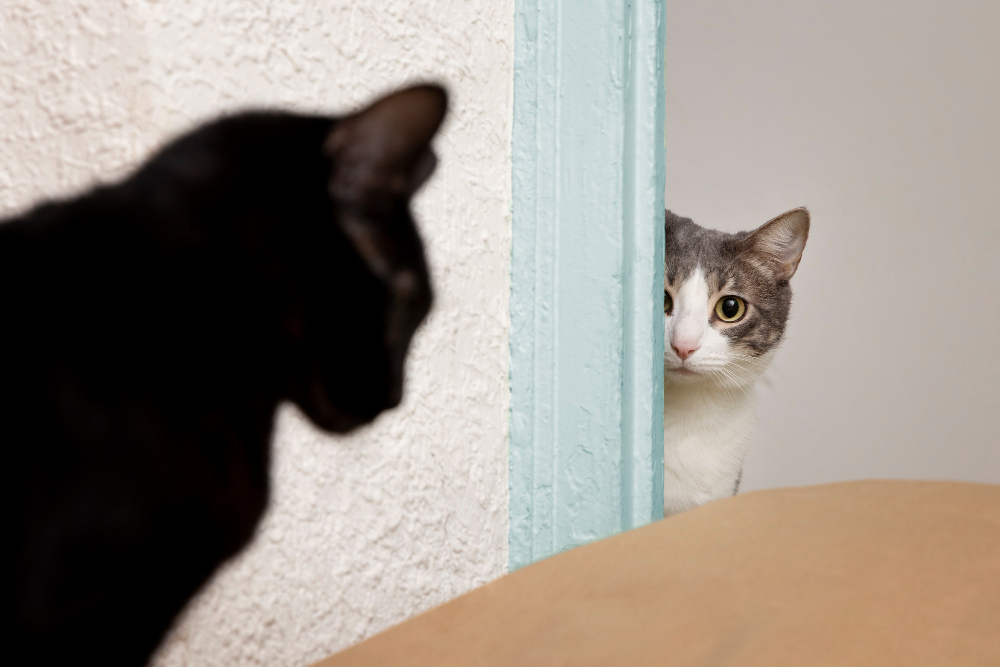Veterinary Services
Hiding or Whining

Hiding or Whining
Pets may hide or whine when they are scared or anxious. Loud noises, new environments, or unfamiliar people or animals can trigger these responses. Create a safe and comfortable space for your pet, such as a designated area with their bed, toys, and familiar scents. Provide gentle reassurance and gradually expose them to the source of fear or anxiety, using positive reinforcement and treats to help them associate it with positive experiences.
If your pet is hiding or whining suddenly and displaying other signs of illness or discomfort, such as lethargy, decreased appetite, or vomiting, it’s essential to consult a veterinarian. Pets may try to conceal their pain or discomfort, so a thorough examination by a professional is necessary to identify any underlying health issues.
Pets can be sensitive to changes in their surroundings, such as moving to a new home or rearranging furniture. Give your pet time to adjust, maintain a consistent routine, and gradually introduce them to the new environment. Offer familiar items like their bedding, toys, and bowls to provide a sense of familiarity.
Sometimes, pets may whine or hide to get attention or express their needs. Ensure that your pet’s basic needs are met, such as food, water, exercise, and bathroom breaks. Spend quality time with your pet, engaging in play and providing mental stimulation. If your pet’s behavior becomes excessive, call our veterinarian or a professional animal behaviorist for further guidance.
